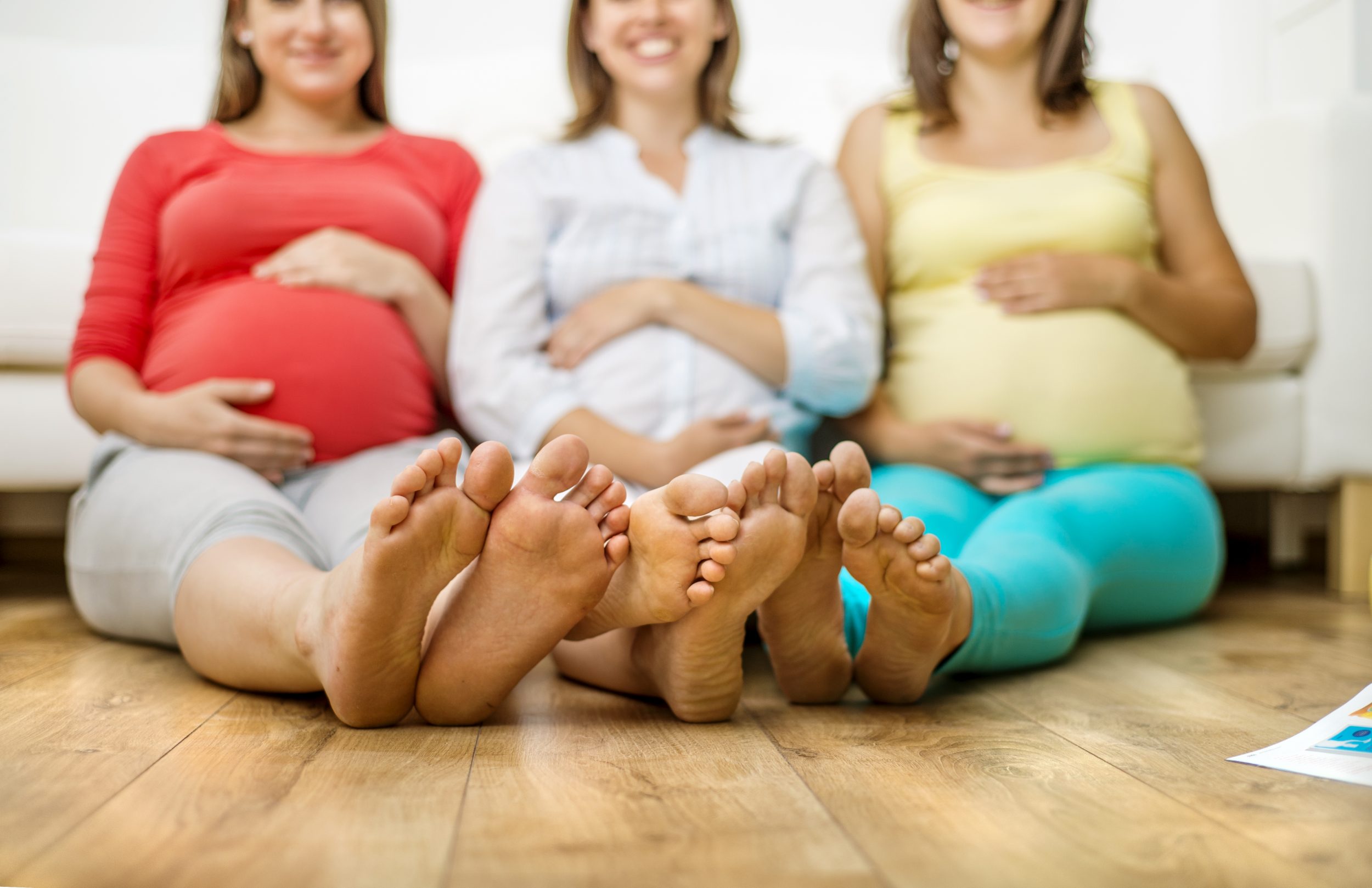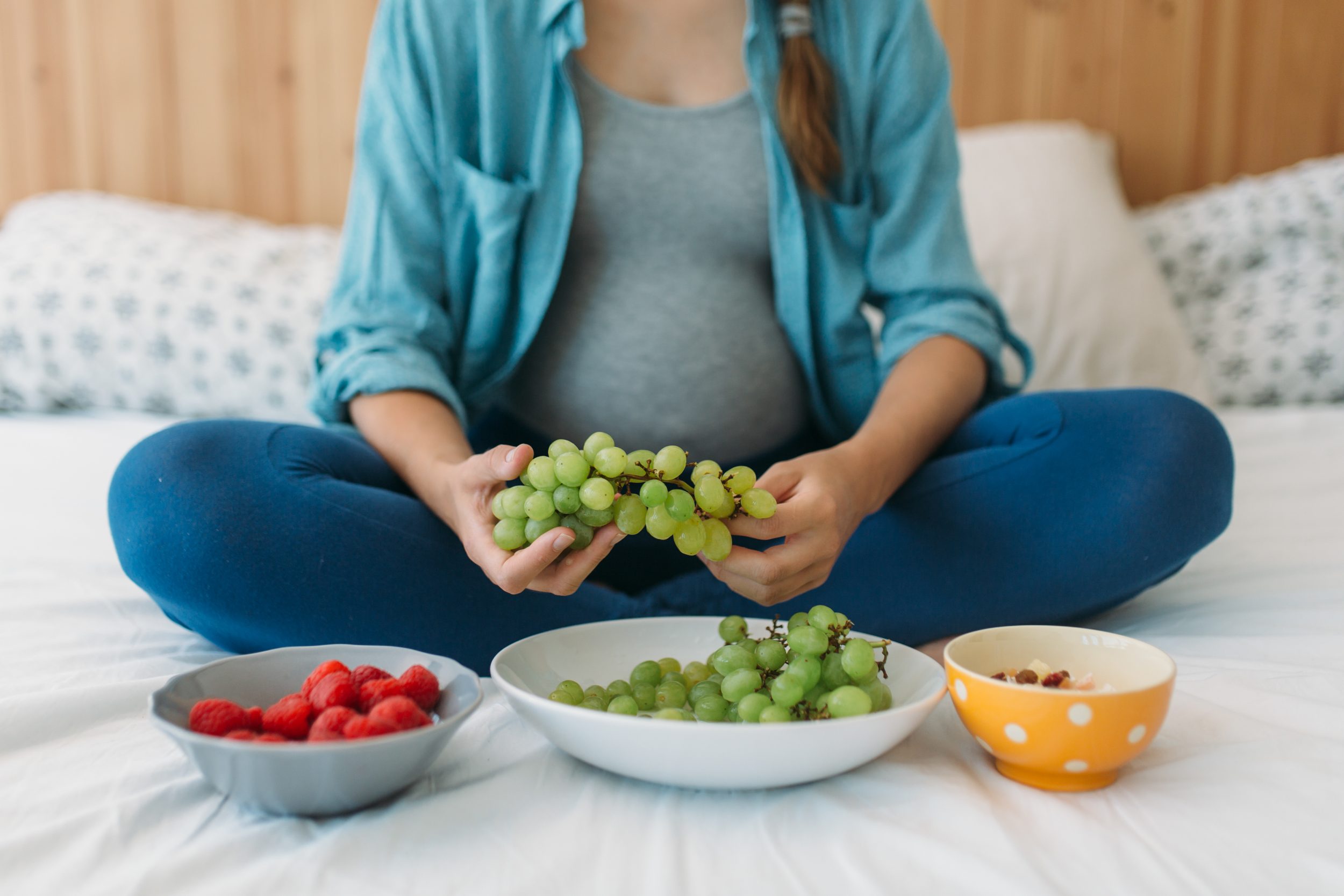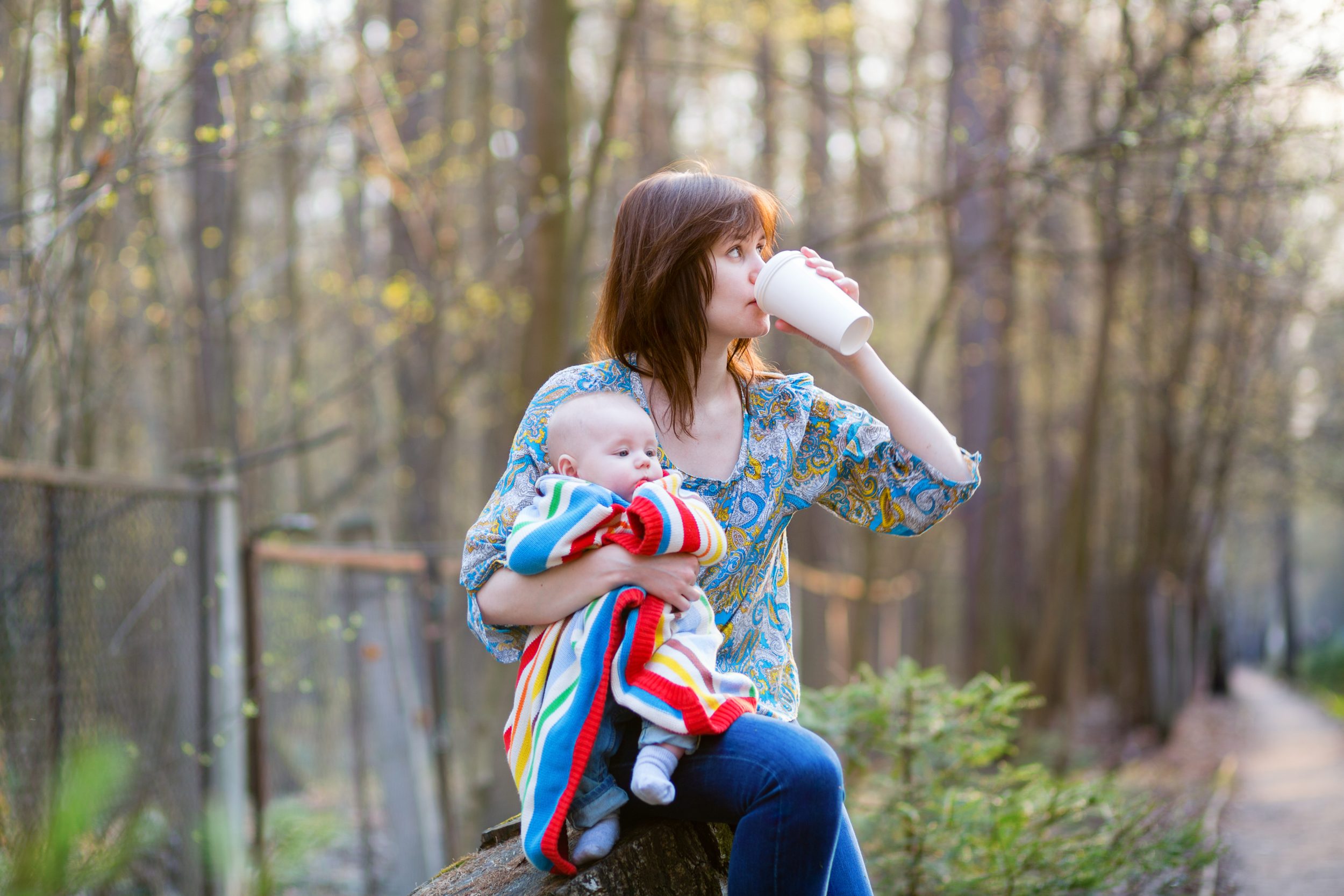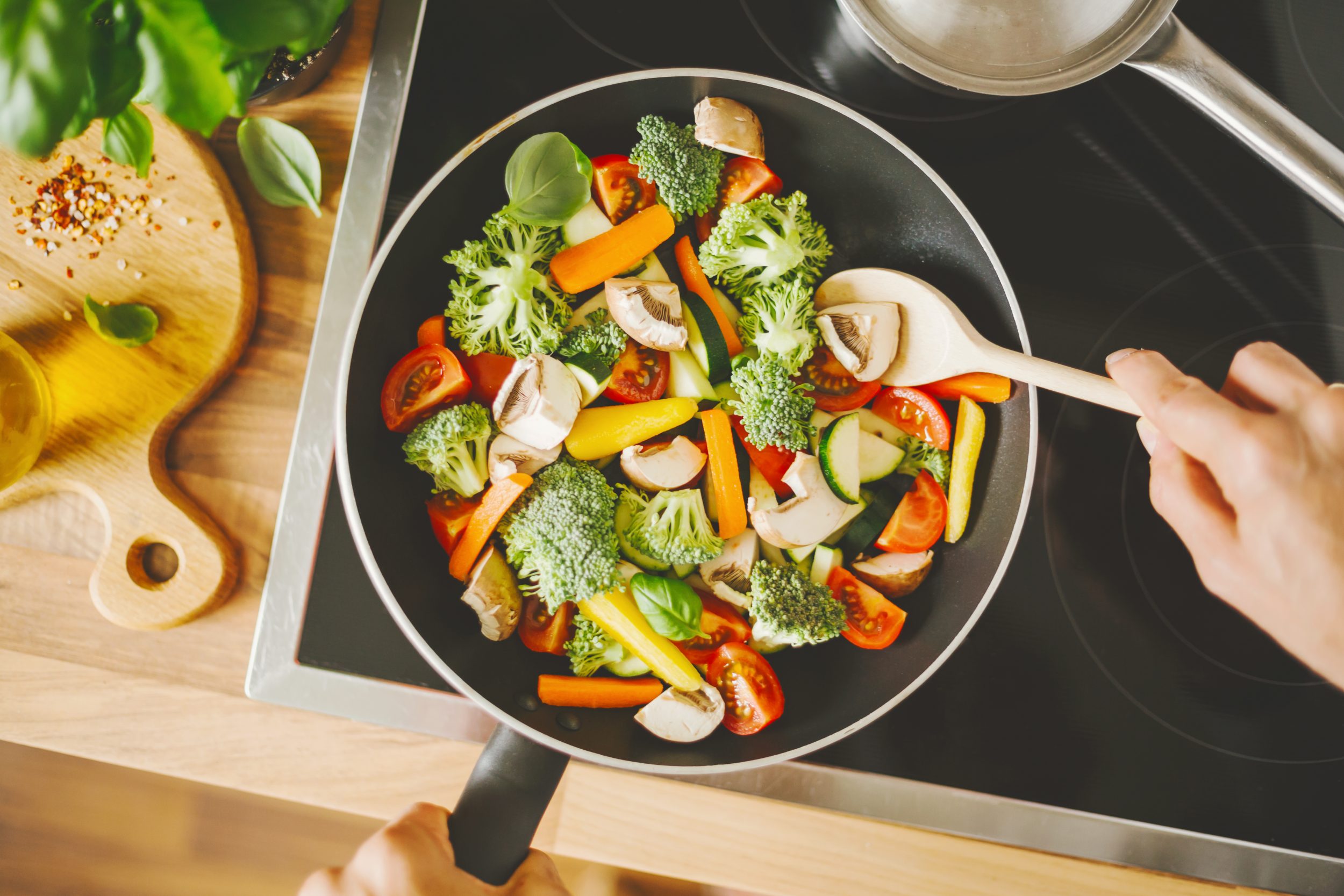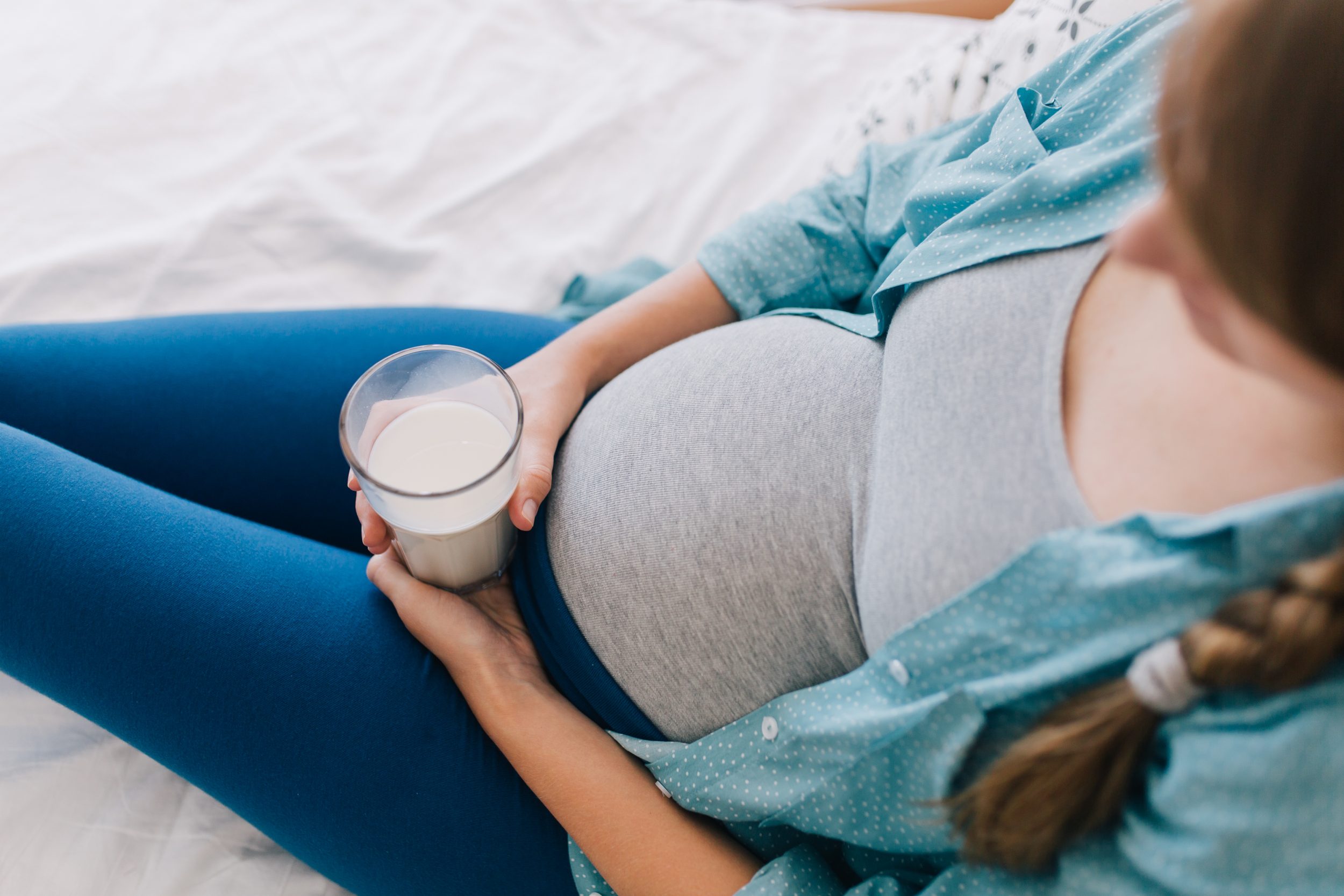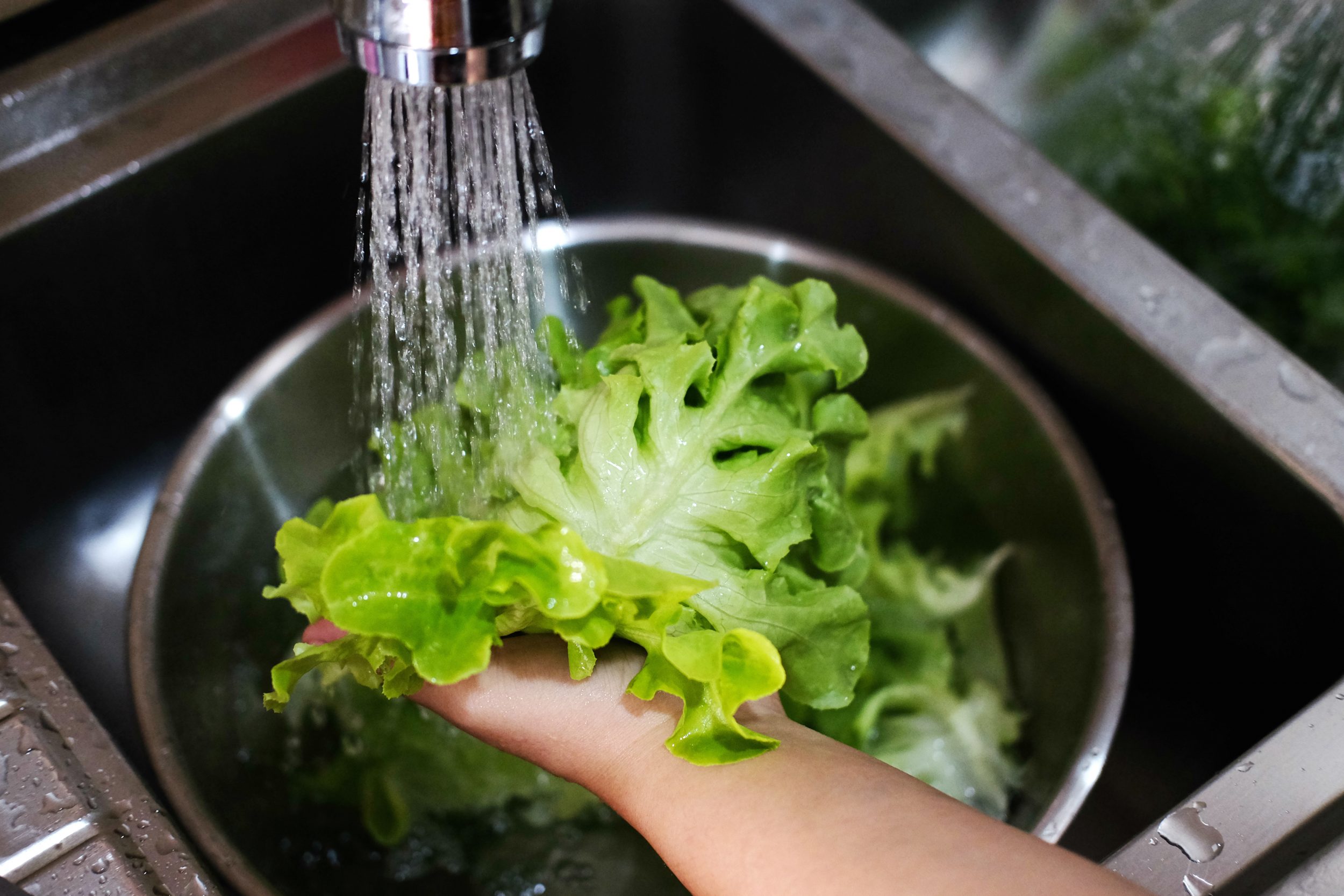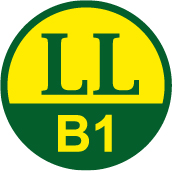
Here you will find frequently asked questions including answers on nutrition and exercise during pregnancy.
There is a myth that says you should eat for two. This myth is not true. During pregnancy, you only need about 250 kcal more per day in the second trimester (13th - 27th week of pregnancy). This can easily be covered by a snack such as an apple and a carton of butter and milk or a graham roll with cheese and tomato. In the third trimester (28th to 40th week of pregnancy) you need another 250 kcal more per day, i.e. a total of 500 kcal more per day. You can satisfy your hunger with:
- Colourful lentil stew
- Pike-perch with polenta and tomato salad.
It is important to cover the additional energy requirement with nutrient-rich foods such as vegetables, pulses, fruit, wholemeal products and dairy products.
During pregnancy, it is particularly important to regularly consume enough energy and nutrients to keep yourself and your baby adequately nourished. It is advisable to eat five meals throughout the day, including:
- 3 main meals
- 2 snacks
Remember to drink enough!
You should drink at least 1.5 litres a day to ensure you drink enough fluids. The best drinks for this are
- Tap water
- Still mineral water
- Unsweetened fruit tea
- Highly diluted 100% fruit and vegetable juices
Caution! Certain drinks are taboo during pregnancy and some should only be consumed in small quantities:
You should not drink alcohol during pregnancy! Please note that the following foods may also contain residual alcohol:
- Pastries
- Sweets
- Cooked sauces
The consumption of drinks with caffeine should be limited: no more than 2-3 cups of coffee or no more than 4 cups of green or black tea per day. Please note that drinks such as iced tea, cola, iced coffee and soft drinks may contain caffeine. Drinks with guarana can also contain caffeine. Pregnant women should avoid drinks with a lot of caffeine (e.g. energy drinks). They should also avoid sweetened drinks.
You should not drink drinks containing quinine (e.g. tonic water, bitter lemon) during pregnancy.
An adequate supply of folic acid is important for the optimal growth of the child. Women who wish to have children and pregnant women should ensure that they have an adequate supply of this vitamin. Women who could become pregnant should also pay attention to this. Please talk to your doctor about taking additional folic acid supplements.
Folic acid is naturally contained in:
- Vegetables such as lettuce, spinach, fennel, broccoli and various types of cabbage are healthy. Pulses such as lentils, beans, peas and chickpeas are also recommended. The following foods are recommended for a healthy diet:
- Wholemeal products (e.g. bread, pastries, muesli, pasta)
- Fruit (e.g. strawberries, raspberries, oranges, bananas)
- Nuts
- Milk products (do not use raw milk products) Observe hygiene rules!
Fatty marine fish such as salmon are good for omega-3 fatty acids. Domestic fish from cold water such as trout are also suitable. This is good for the child's development. Sea fish are also an important source of iodine. There is even evidence that eating fish during pregnancy can protect against allergic diseases in the child. It is advisable to eat fish 1-2 times a week.
During pregnancy, you should avoid predatory fish that may contain heavy metals. These include
- Tuna
- Swordfish
- Heil-Butt
- Pike
- Butter-Fish
- Snapper
- Shark
- Marlin
- King mackerel
- Butter mackerel
- Snake mackerel
You should avoid the following during pregnancy:
- Raw fish like sushi
- Raw seafood such as oysters
You should not eat these foods. You should also avoid smoked and pickled fish such as smoked salmon, smoked trout or gravad salmon during pregnancy to protect yourself from a possible infection with bacteria.
The general rule during pregnancy is: "no raw milk and raw milk products"!
For soft cheeses such as Brie and Camembert as well as smear cheeses such as Tilsiter and Quargel, there is a stricter guideline to protect against infection with bacteria. You should not eat these types of cheese during pregnancy, regardless of whether they are made from raw milk or pasteurised milk.
Pregnant women should avoid the following for precautionary reasons:
- Sushi
- raw fish
- Semi-cooked fish Raw or undercooked fish
can cause foodborne infections, such as an infection with listeria. If a pregnant woman becomes infected, the disease can also pass to the child in the mother's womb. This can lead to serious illness in the newborn.
Small amounts of alcohol are also strongly discouraged during pregnancy. This can have a negative impact on the physical and mental development of the unborn child.
Please also refrain from cooking alcohol, as a certain residual alcohol content remains. This cooking method should be avoided as:
- The flavour is influenced.
- It is inappropriate to use alcohol in cooking, especially if it is for children.
Yes, you should definitely take the same precautions regarding high-risk foods, even if you are toxoplasmosis positive. These foods can harm the child because they can transmit pathogens such as listeria, salmonella and others. Toxoplasma is an example of this. It is important to heat food sufficiently and to pay attention to careful kitchen hygiene in order to kill pathogens.
On our homepage you will find an overview of foods that you should avoid during pregnancy. There are also hygiene tips. You can find the overview under the menu item ‘Risk foods & taboos during pregnancy’. You can also find important hygiene tips on our homepage.
You can drink coffee during pregnancy, but it is recommended that you limit your consumption of drinks with caffeine. You should drink a maximum of 2-3 cups of coffee or a maximum of 4 cups of green or black tea per day.
Note: Drinks such as iced tea, cola, iced coffee and soft drinks with guarana also contain caffeine!
The following drinks are best suited to quench your thirst:
- Still mineral water
- Tap water
- Unsweetened fruit teas
- Highly diluted 100% fruit and vegetable juices.
Here are some tips that can help you against heartburn:
- Eat slowly and not too much at once. Instead, you should eat more frequently throughout the day.
- Don't eat your last meal too close to bedtime.
- Listen to your body and avoid foods that have caused heartburn in the past.
- Carbohydrates, milk and dairy products can temporarily alleviate symptoms if consumed in moderation.
- Chew some nuts thoroughly.
Avoid the following foods:
- Carbonated drinks
- Food that is too fatty
- Foods that are too sweet
- Foods that are too acidic
- Food that is too strongly flavoured.
You are not alone with this problem! Around 80-90 per cent of pregnant women suffer from nausea at some point during their pregnancy, which is more common in the first trimester. We give you some tips that can help against nausea. If you suffer from prolonged or severe vomiting, you should see your doctor immediately. If the previous measures do not help, it is also advisable to consult a doctor. Use the telephone or go to an emergency room.
Some tips for mild nausea:
Eat a small snack before getting up, such as:
- Wholemeal biscuits
- Rusk
- Crispbread
and drink a cup of tea. Get up slowly afterwards.
Eat several small meals throughout the day and drink enough. Do not eat too much at once. Snacks between meals can be helpful.
Here are some examples:
- Wholemeal products
- Toast without butter
- Cracker
- Breakfast cereals without sugar
- Fruit
- Vegetables
- Salads
Choose foods that contain less:
fat
sugar
Pregnancy and exercise. If the pregnancy proceeds without complications, regular exercise is good for mother and child. 30 minutes of moderate exercise every day is good for your health.
Here are some examples:
- Walking
- Swimming
- Light aerobic exercises
One should avoid:
- Sports with a high risk of falling, such as horse riding
- More intensive sports with rackets
- Soccer
- Basketball and similar sports.
- Diving should also be avoided during pregnancy as it can lead to decompression sickness.
You should drink at least 1.5 litres a day to ensure you drink enough fluids. The best drinks for this are
- Tap water
- Still mineral water
- Unsweetened fruit tea
- Highly diluted 100% fruit and vegetable juices
Caution! Certain drinks are taboo during pregnancy and some should only be consumed in small quantities:
You should not drink alcohol during pregnancy. The following foodstuffs may also contain (residual) alcohol:
- Pastries
sweets
- Cooked sauces
To limit your consumption of caffeinated drinks, you should drink at most the following:
- 2-3 cups of coffee
- 4 cups of green or black tea per day. Please note that the following drinks may also contain caffeine:
- Icetea
- Cola
- Ice-Coffee
- Soft drinks with guarana etc.
Pregnant women should not drink (sweetened) drinks with a high caffeine content such as energy drinks. You should not drink drinks with quinine during pregnancy. These include
- Tonic Water
- Bitter Lemon
Factsheet Richtig essen in der Schwangerschaft

